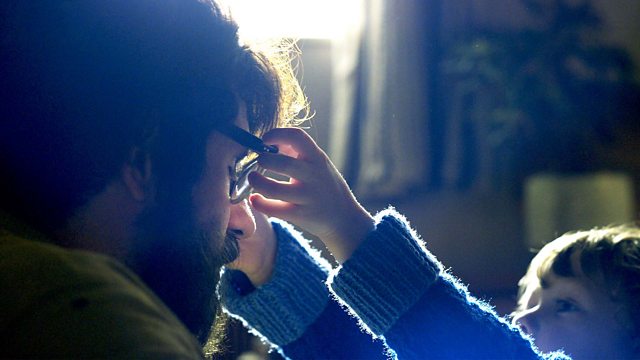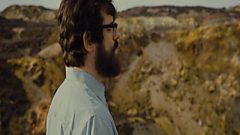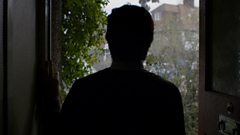
Notes on Blindness
A Storyville documentary. Moving and inspiring account of university professor's sight loss, his rebirth and renewal. Available with audio description or a heightened soundtrack.
This Bafta-nominated film is a moving and inspiring account of loss, rebirth and renewal - and the discovery of 'a world beyond sight'. In 1983, after decades of steady deterioration, John Hull, a professor at the University of Birmingham, became totally blind. To help him make sense of the upheaval in his life, he began documenting his experiences on audio cassette. Over three years he recorded over sixteen hours of material.
This beautifully crafted documentary takes John's original recordings as the template for the film, incorporating lip-syncing by actors in evocative reconstructions. The technique allows the viewer to immerse themselves in John's world as he comes to terms with his deteriorating sight, and learns to experience the world in different ways. As John explains about his redemptive journey: 'I knew that if I didn't understand blindness, it would destroy me.'
A Storyville documentary that is available in two versions, with audio description or with a heightened soundtrack.
This audio-described version is read by Stephen Mangan and aims to provide blind and partially sighted audiences with an alternative to the standard AD track.
The heightened soundtrack uses more original narration from John and Marilyn, with extra sound design and music, to guide the audience through the story of how John coped with his sight loss.
Last on
More episodes
Next
Clips
-
![]()
Sound Track guide
Duration: 02:16
-
![]()
The sound of rain
Duration: 02:25
Music Played
Timings (where shown) are from the start of the programme in hours and minutes
-
![]() 00:28
00:28The Mamas & the Papas
Dedicated To The One I Love
Directors James Spinney and Peter Middleton answer the Storyville Q&A

Well, about six years ago we were developing a short project about snowfall. Snow has been called ‘the blind person’s fog’ and researching this idea led us to John Hull’s book, 'Touching The Rock', which has a short chapter about his experience of snowfall. We found ourselves captivated by the book, which was transcribed from the audio diaries he kept after becoming blind. After we got to know John, he was generous enough to share those original cassette recordings with us - and the project was born.
How long did it take to get the film off the ground?
It took around four years from the time we first met John and Marilyn until we had the green light to go into production. But in retrospect, the film really benefited from this long gestation period. Especially as we had tens of hours of audio to make sense of before we began filming.
What was the most surprising thing to happen in the course of production?
I think the biggest surprise for us came about six months before we were due to begin shooting, when John and Marilyn pulled out another huge box of tapes. It contained cassette recordings of life around the house from the same period John was keeping his diary. John would make audio recordings in a similar way to home movies. Suddenly the voices of John's children, his parents could become part of the film. It was at this point that the whole possibility of having the cast lip-synching to the voices of John and the family really took flight.
What have been the differences in reception to the film in countries it has now travelled to?
The film is experienced very differently in other countries. For example, in the television versions in France and Germany, John and Marilyn’s voices are dubbed by actors. It’s a very different film when viewed that way; essentially it becomes an adaptation.
What is more important, story or character?
They're both important. But the idea of what a film story must be can be over prescriptive. Kubrick said film should be more like music than fiction.
Which documentaries have most inspired you?
It’s such an interesting time for creative approaches to documentary. We've been very inspired by films such as 'Stories We Tell', 'The Possibilities Are Endless' and 'The Arbor'. One of our favourite documentaries is 'Sleep Furiously’.
Best piece of filmmaking advice you’ve been given?
Collaborate.
Best piece of filmmaking equipment you can’t live without?
On Notes on Blindness, our cinematographer Gerry Floyd made his own set of lens filters out of old, heavily warped window glass. He also amassed a magnificent array of ‘dongles’: bits and bobs to put in front of the lens to refract or distort the image. Everything from chandelier pendants to garden rakes. It wouldn't have been the same film without them!
Notes on Blindness (Heightened Soundtrack)

Credits
| Role | Contributor |
|---|---|
| Director | Peter Middleton |
| Director | James Spinney |
Broadcasts
- Thu 16 Feb 2017 21:00
- Wed 4 Nov 2020 23:30
ARTE - Radio Hull: Notes on Blindness
John and Imogen Hull forming the basis for Notes on Blindness
Notes On Blindness: Into Darkness
An immersive virtual reality (VR) project based on John’s experience of blindness



